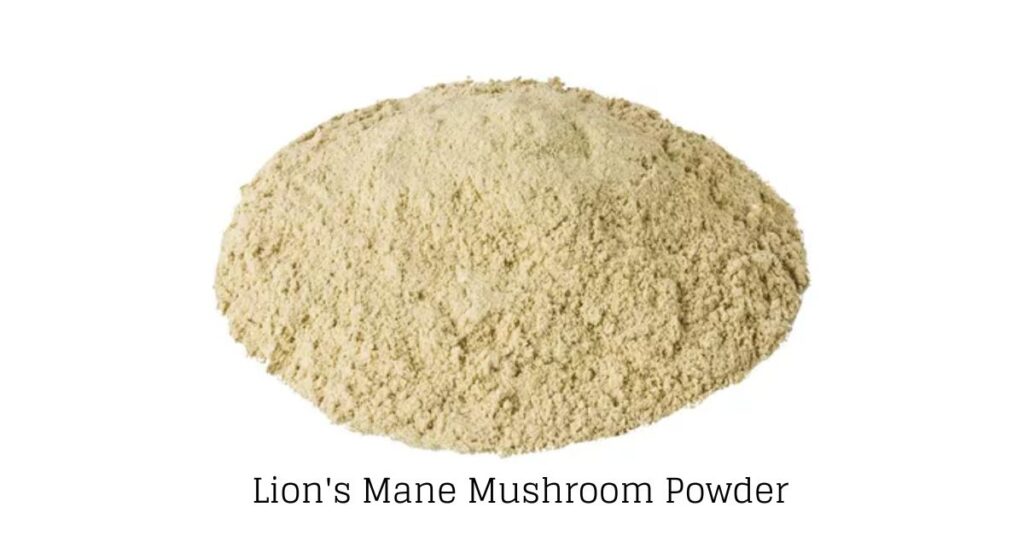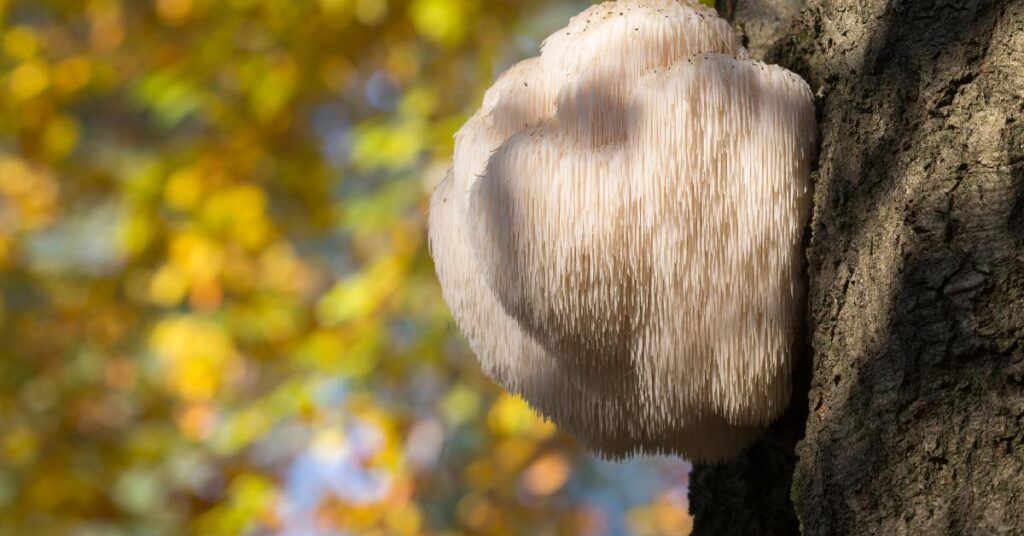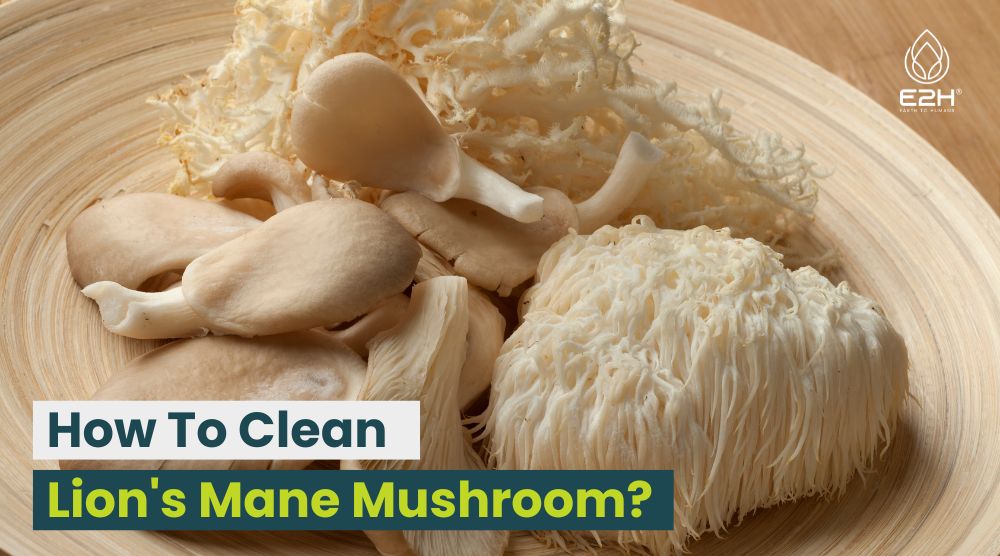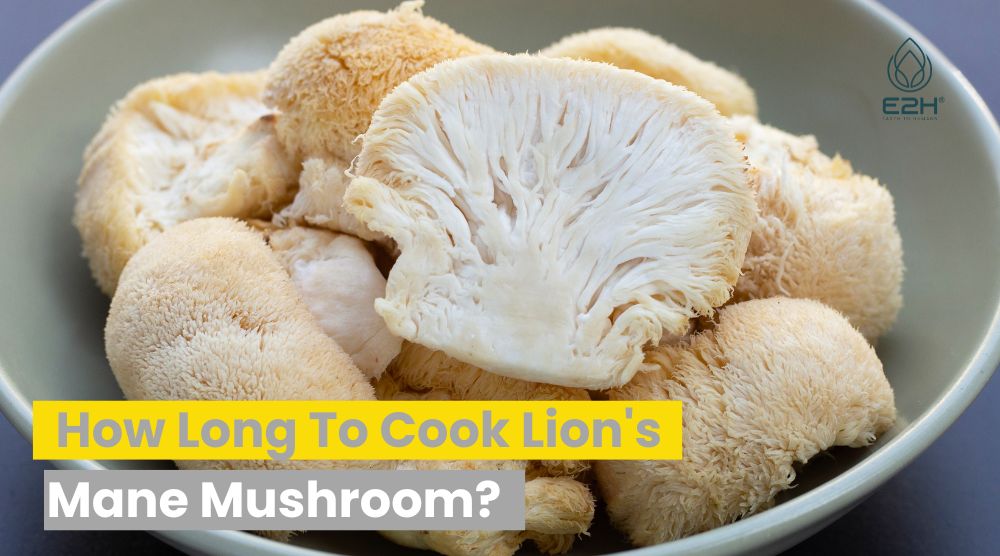Lion’s Mane Extract And Its Potential In Treating Fibromyalgia: Lion’s mane extract shows potential in treating fibromyalgia due to its anti-inflammatory and neuroprotective properties. However, more research is needed to establish its effectiveness in treating this condition.
Lion’s Mane Mushroom – An Introduction
Lion’s Mane Mushroom, also known as Hedgehog mushroom or Yamabushitake, this mushroom species has been grown for traditional chinese medicine. Its unique appearance, resembling a lion’s mane, has earned it its name. In recent years, Lion’s Mane has gained popularity worldwide due to scientific evidence of medicinal mushrooms and its potential health benefits. This fungus is known for its powerful neuroprotective and anti-inflammatory properties, making it an interesting candidate for fibromyalgia treatment.

Lion’s Mane Extract and its Active Compounds
Lion’s Mane extract is derived from the fruiting body of the above mushroom species and contains a variety of bioactive compounds. These include hericenones, erinacines, polysaccharides, and beta-glucans. These compounds have been extensively studied for their potential health benefits. The neuroprotective and antioxidant properties of Lion’s Mane extract are mainly attributed to hericenones and erinacines, which have been shown to stimulate nerve growth factor (NGF) production in brain cells and promote neuronal health.
The Link Between Lion’s Mane Extract and Fibromyalgia
Fibromyalgia is a condition that involves both chronic pain and cognitive impairments. Lion’s Mane extract has shown promise in addressing both of these aspects. The anti-inflammatory properties of Lion’s Mane extract may help reduce the inflammation associated with fibromyalgia, thereby alleviating pain. Additionally, the neuroprotective effects of the mushroom extract may improve cognitive function, including memory and concentration, which are often affected in fibromyalgia patients.
Research Studies and Evidence
Several studies have investigated the potential health benefits and beneficial effects of Lion’s Mane extract in fibromyalgia patients. In a randomized controlled trial involving fibromyalgia patients, participants who consumed Lion’s Mane extract reported significant improvements in pain levels, their overall health, quality of life, and cognitive function compared to the placebo group.
Another study found that Lion’s Mane extract reduced pain sensitivity and improved sleep quality improved cognitive function in fibromyalgia patients. While these studies show promising results, it is important to note that more research is needed to fully understand the mechanisms and effectiveness of Lion’s Mane extract in treating fibromyalgia.
Lion’s Mane Extract Dosage and Administration
Lion’s Mane extract is available in various forms, including capsules, powders, and tinctures. The recommended dosage typically ranges from 500mg to 3000mg per day, depending on the individual and product potency. It is advisable to start with a lower dosage and gradually increase it as needed. It is important to consult with a healthcare professional before starting any new supplement regimen, especially if you have any underlying medical conditions or are taking other medications.
Potential Side Effects and Precautions
Lion’s Mane extract is generally considered safe for most people when taken at the recommended dosages. However, some individuals may experience mild gastrointestinal side effects, such depressive symptoms such as stomach discomfort or diarrhea. It is also worth noting that Lion’s Mane is a type of mushroom, and individuals with known mushroom allergies should exercise caution or avoid its use altogether.
Other Benefits of Lion’s Mane Extract
Apart from its potential medicinal properties in treating fibromyalgia, Lion’s Mane extract offers other health benefits. It is known to support brain health by promoting nerve growth and protecting neurons and spinal cord from damage chronic stress.

Additionally, Lion’s Mane extract has been studied for its anxiolytic and antidepressant properties, which may help reduce anxiety and depression symptoms. The presence of antioxidants in Lion’s Mane extract further contributes to its overall mental health well-promoting beneficial effects.
Does lions mane help for fibromyalgia?
Lion’s Mane (Hericium erinaceus) has shown potential in managing fibromyalgia symptoms. Research suggests that its bioactive compounds may modulate neuroinflammation and nerve growth, potentially reducing pain and discomfort associated with fibromyalgia. However, more rigorous clinical trials are needed to establish its efficacy definitively. If considering Lion’s Mane for fibromyalgia, consult a healthcare professional to discuss its potential benefits and suitability based on individual health conditions and medications.
Does Lion’s Mane help with pain?
Lion’s Mane has been investigated for its potential pain-relieving properties. Studies suggest its ability to promote nerve growth and reduce inflammation, which may alleviate certain types of pain. While it shows promise as a complementary therapy for mild pain, it is essential to remember that Lion’s Mane should not replace conventional pain management treatments for chronic or severe pain conditions. Always consult with a healthcare expert to ensure its safe integration into existing pain management plans.
Who should not use lion’s mane?
Although generally considered safe for most people, certain individuals should avoid Lion’s Mane supplementation. These include pregnant or breastfeeding women, individuals with mushroom allergies, or those taking blood-thinning medications. Additionally, individuals with a history of surgery should exercise caution due to the potential for increased bleeding risk. Always consult a qualified healthcare practitioner before using Lion’s Mane or any new supplement, especially if you have existing health conditions or are taking prescription medications.
Is Lion’s Mane good for autoimmune?
Lion’s Mane’s immunomodulatory properties have sparked interest in its potential role for autoimmune conditions. However, the evidence is still limited, and using Lion’s Mane solely for autoimmune disorders is not recommended. While it might help regulate the immune system, its impact on specific autoimmune diseases remains uncertain. Patients with autoimmune conditions should avoid self-treatment and instead work closely with their healthcare provider to explore appropriate treatment plans tailored to their unique needs, considering factors like disease severity, medications, and potential interactions.

What is the link between early menopause and mild cognitive impairment?
Research suggests a link between early menopause and an increased risk of mild cognitive impairment (MCI). Women who experience early menopause, typically before the age of 45, may have a higher likelihood of developing MCI later in life. Hormonal changes during menopause, such as reduced estrogen levels, may play a role in cognitive decline. However, more studies are needed to fully understand the exact relationship between early menopause and MCI.
Brain Booster? The Magic Power Of Lion’s Mane Mushroom (aka Hericium erinaceus)
FAQs
Is Lion’s Mane extract a cure for fibromyalgia?
No, Lion’s Mane Mushroom extract is not a cure for fibromyalgia. It may help manage symptoms and improve quality of life, but a comprehensive treatment plan is necessary for long-term management.
Can Lion’s Mane extract be used alongside other medications?
It is important cancer patients to consult with a healthcare professional before combining Lion’s Mane extract with other medications to ensure there are no potential interactions.
How long does it take to see results from Lion’s Mane extract?
The time it takes to take traditional medicine and see results may vary among individuals. Some may take traditional medicine and experience improvements in a few weeks, while others may require longer. Patience is key when using alternative medicine and natural remedies.
Are there any age restrictions for using Lion’s Mane extract?
Lion’s Mane extract is generally safe for adults. However, it is always advisable to consult with a healthcare or mental health, professional before giving any supplements to children or older adults.
Can I grow and consume my own Lion’s Mane mushrooms?
Yes, it is possible to grow and consume your own Lion’s Mane mushrooms. However, it requires specific knowledge and conditions, so it is recommended to seek guidance or purchase from trusted sources.
Conclusion
Lion’s Mane extract holds promise as a natural remedy in the treatment of fibromyalgia. Its active compounds, including hericenones and erinacines, show potential in alleviating pain and improving cognitive brain function too. While research suggests positive effects, more studies are needed to solidify the efficacy and safety of Lion’s Mane extract for fibromyalgia. If you are considering Lion’s Mane extract as part of your fibromyalgia management, it is essential to consult with a healthcare professional for personalized advice and guidance.














